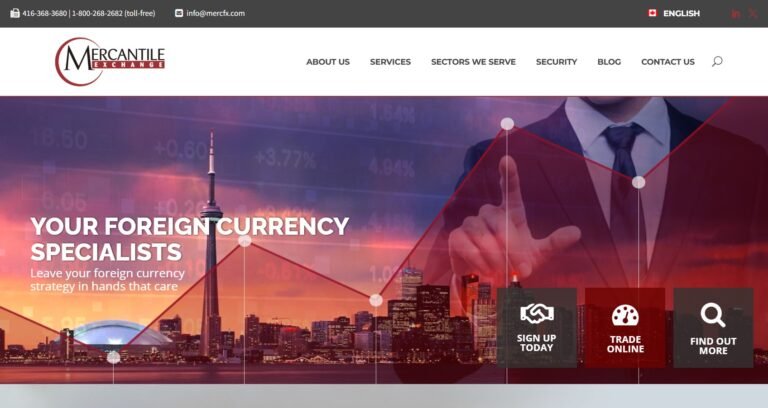Table of Contents
Introduction to Mercantile Exchange
This article provides an in-depth Mercantile Exchange review, exploring whether Mercantile Exchange is a scam or a legitimate trading platform. The broker claims to provide access to forex, commodities, and CFD trading, presenting itself as a global financial service provider. However, the registration details suggest it may operate from an offshore jurisdiction, which raises critical concerns. So, is Mercantile Exchange a scam or a safe place to invest? This Mercantile Exchange review uncovers all the warning signs you need to know.
Our aim is to inform two key audiences: those who suspect they’ve been scammed by Mercantile Exchange and need solid facts, and those considering this broker but want to verify its credibility before risking their funds. If you’re angry, frustrated, or simply cautious, this review addresses your concerns directly.
Mercantile Exchange: Regulation & Legal Status
Regulation is the cornerstone of broker legitimacy. Unfortunately, Mercantile Exchange provides little to no verifiable evidence of regulation by top-tier authorities such as the FCA, ASIC, or CySEC. While it may claim registration, registration alone does not equal regulation. This is a common tactic used by brokers to appear credible without offering real investor protection.
Trading with an unregulated broker leaves you vulnerable to unfair practices, loss of funds, and no access to independent dispute resolution. To safeguard your investments, learn how to spot a scam broker before it’s too late.
The lack of oversight raises serious questions about whether Mercantile Exchange is a scam.
Trading Conditions & Platform Analysis of Mercantile Exchange
Mercantile Exchange advertises multiple account types with a minimum deposit reportedly starting at $250. It offers leverage up to 1:500 and claims tight spreads, but it does not provide transparency about its liquidity providers or trade execution policies. Although the broker lists MT5 as one of its platforms, simply offering MT5 does not ensure reliability or fair execution.
The combination of high leverage, unclear pricing models, and lack of proof of real market access is a red flag. Before committing funds, review what to check before signing up with a trading platform.
These gaps make it harder to dismiss the idea that Mercantile Exchange might be a fraud.
Reputation & User Reviews About Mercantile Exchange
On review platforms like TrustPilot, Mercantile Exchange displays a mix of glowing reviews and serious complaints. Many positive testimonials seem templated and lack depth, suggesting they may be fabricated. Common complaints from real users include withdrawal delays, unresponsive support, and sudden account restrictions.
Website traffic data (via SimilarWeb) shows relatively low engagement, primarily from countries with less stringent financial oversight, which raises additional concerns about its credibility.
How to Test Whether Mercantile Exchange Is a Scam
Start by verifying Mercantile Exchange’s license status with authorities like the SEC or FCA. Lack of an authentic license is a major red flag.
Read user feedback on independent forums like Forex Peace Army, but be cautious of fake positive reviews. Test their platform and website yourself—unprofessional design or hidden terms often indicate a scam.
Review their withdrawal policies carefully. Brokers demanding crypto-only withdrawals or imposing vague withdrawal rules are suspicious. Be alert to any guarantees of risk-free profits—no legitimate broker makes such claims.
A legitimate broker typically offers a demo account that allows you to explore features without a deposit.
Final Verdict & Alternatives
Our analysis of Mercantile Exchange reveals several red flags: lack of credible regulation, opaque trading conditions, and mixed user reviews that include serious complaints. These factors strongly suggest exercising extreme caution or avoiding this broker entirely.
If you want to trade safely, choose brokers regulated by established authorities such as FCA, ASIC, or CySEC. Licensed brokers provide investor protections, clear terms, and reliable dispute mechanisms.
Protect your funds by sticking with regulated trading platforms and avoiding high-risk, unverified entities.


